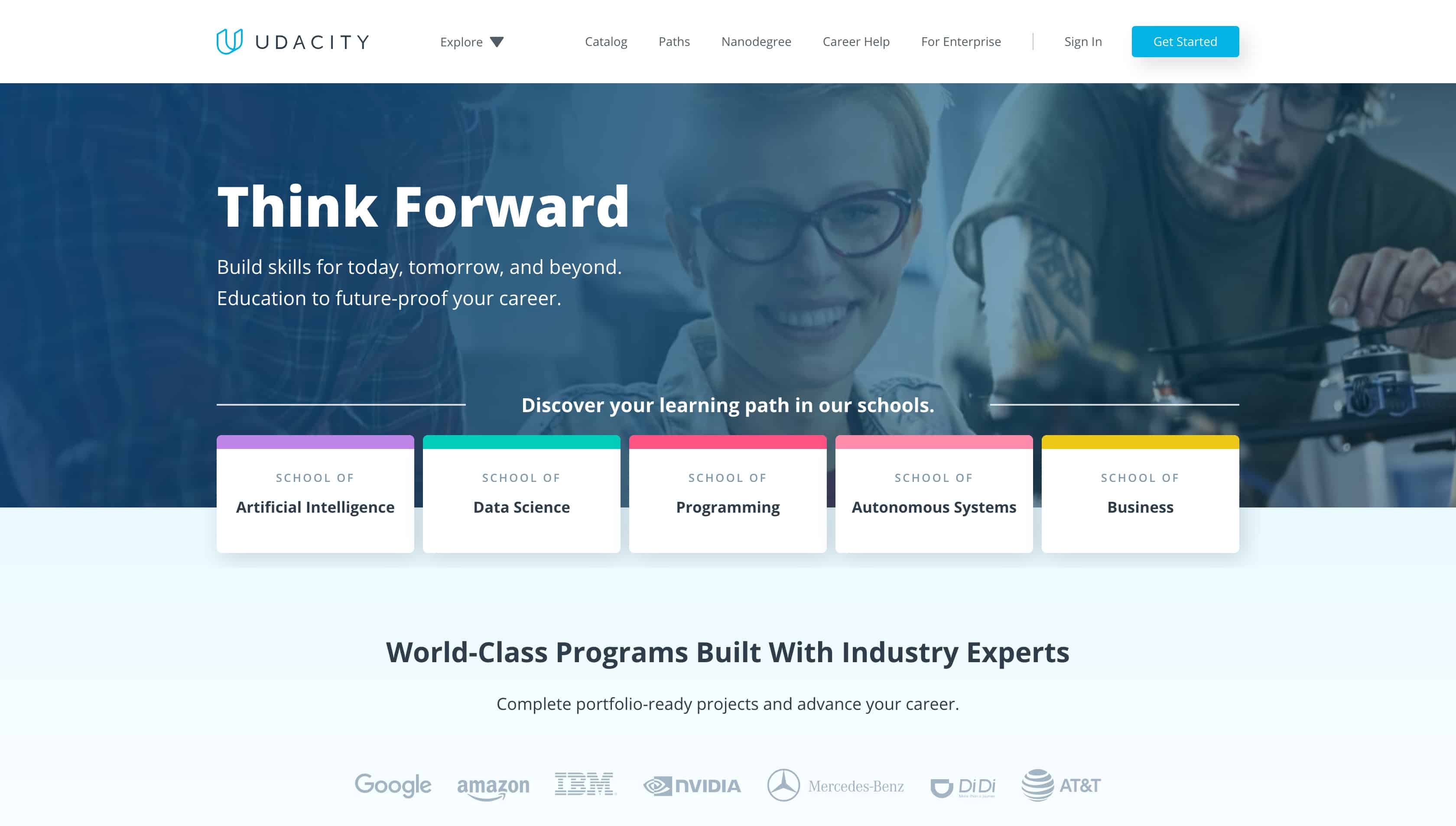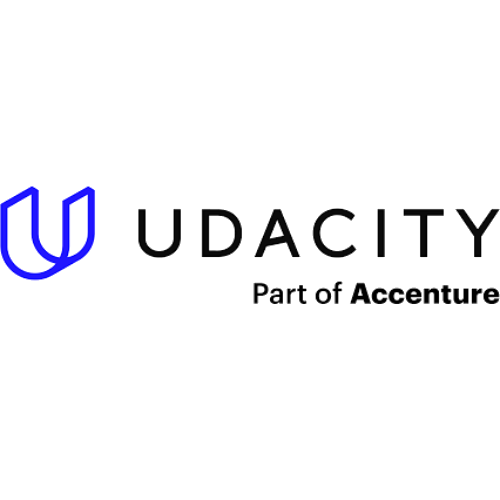Introduction
Udacity is one of the most recognized online learning platforms known for its career-focused Nanodegree programs. Launched in 2011, it was created with the goal of making tech education accessible to everyone—whether you’re a beginner looking to break into a new field or a professional aiming to upskill in AI, data science, cloud computing, and more.
With a strong emphasis on real-world skills, Udacity collaborates with top tech companies like Google, AWS, and Nvidia to offer up-to-date, industry-relevant training. The platform caters to tech enthusiasts, career changers, and working professionals who want in-depth, project-based learning rather than casual courses.
Platform Highlights
Udacity stands out for its high-quality content and intensive programs. Here are some of its top features:
-
Nanodegree Programs: Curated multi-month programs focused on job-ready skills.
-
Industry Collaboration: Courses built with input from Google, Meta, Microsoft, and others.
-
Real Projects: Hands-on projects reviewed by real experts.
-
Career Services: Resume reviews, LinkedIn optimization, and interview prep.
-
Flexible Learning: 100% online, with self-paced schedules.
-
Certificates: Verified digital certificates upon completion of Nanodegrees.

User Experience
Udacity delivers a clean, modern, and intuitive user interface. Once logged in, users are greeted with a dashboard that shows their enrolled programs, progress, upcoming deadlines, and access to mentor support.
-
Navigation: Easy to switch between lessons, quizzes, and project submissions.
-
Mobile-Responsive: While there’s no dedicated mobile app, the website works well on tablets and phones.
-
Mentor Support: Most programs offer timely help from real mentors via forums and chat.
-
Dark Mode: Yes, it’s available for night-time learners!
Course Quality
Udacity doesn’t offer thousands of random courses like some competitors. Instead, it focuses on a curated set of high-quality tech-centric programs, including:
-
Artificial Intelligence
-
Data Science & Machine Learning
-
Programming & Web Development
-
Cloud Computing
-
Cybersecurity
-
Product Management & Business Analytics
Each Nanodegree is divided into modules, with video lectures, quizzes, and practical projects. The projects mimic real-world scenarios, such as building a recommendation engine, creating a website with React, or deploying apps with Docker and Kubernetes.
Who Should Use Udacity?
-
Aspiring Data Scientists or Machine Learning Engineers
-
Software Developers & Web Designers
-
Cloud Architects or DevOps Engineers
-
IT Professionals aiming to transition into emerging tech roles
Pricing and Plans
Udacity does not offer free courses anymore (as it did in its early days). Instead, it has subscription-based pricing, typically costing:
-
$249/month (with frequent discounts or scholarship opportunities)
-
Most Nanodegrees take 3 to 6 months to complete, depending on the learner’s pace.
Is It Worth the Price?
If you’re serious about landing a job in tech or enhancing your skills, yes. The value comes from the structured curriculum, real-world projects, and personalized career support. However, if you’re just looking to casually explore topics, there are cheaper or free alternatives like Coursera, edX, or YouTube.
Pros and Cons
✅ Pros:
-
Industry-backed Nanodegree programs
-
Project-based learning with real reviews
-
Excellent career support services
-
Real mentors and personalized feedback
-
Great for serious career-focused learners
❌ Cons:
-
High cost (compared to other platforms)
-
No mobile app
-
Limited to tech/business subjects
-
Not ideal for casual learners or hobbyists
Learners View Verdict
After evaluating the platform thoroughly and considering feedback from real users, we can confidently say:
Udacity is a premium learning platform for serious tech learners.
It’s not the cheapest, but what you get in return—project experience, mentorship, and career services—makes it worthwhile for those focused on getting hired or promoted in tech.
Who We Recommend It For:
-
Learners with a clear career goal (e.g., become a Data Analyst, Cloud Engineer, etc.)
-
Professionals who want to build job-ready skills fast
-
Self-motivated individuals who can thrive in a self-paced learning environment
Who Might Look Elsewhere:
-
Those looking for free or casual learning
-
Beginners not yet sure what tech path they want to take
FAQs
1. What is a Nanodegree on Udacity?
A Nanodegree is a short-term, career-focused program that includes video lessons, quizzes, real-world projects, and career support.
2. Does Udacity provide certificates?
Yes, you’ll receive a verified certificate after completing a Nanodegree program and its associated projects.
3. Can I access Udacity for free?
Currently, Udacity does not offer free full courses, but you can find some free “course previews” or apply for scholarships.
4. How long does it take to complete a Nanodegree?
Most programs take 3 to 6 months if you study around 10 hours per week.
5. Does Udacity help with job placement?
While it doesn’t guarantee a job, it provides resume reviews, LinkedIn help, and interview coaching to improve your chances.
Final Thoughts
Udacity is not for everyone—but for learners with clear career goals in tech, it’s one of the best platforms out there. If you’re ready to invest in your future and want to stand out in a competitive job market, Udacity is a smart choice.
Ready to start learning?
Explore Udacity now on their official site and discover your next tech career path!






